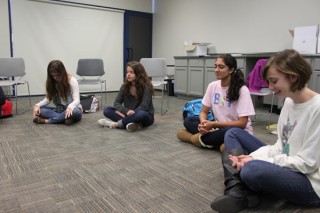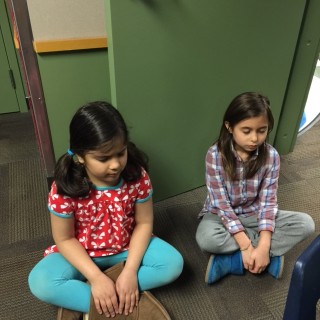Research has proven that practicing mindfulness-based meditation and yoga in the classroom improves students’ focused attention and self-awareness, which contribute to academic success. Mindfulness-based practices also offer measurable health benefits and can reduce anxiety and depression. These valuable activities have become part of the daily routine in the second grade at Glen Urquhart School. Every day, after morning meeting, second graders move through yoga sequences, usually led by one of the students. They end each day with a three to seven minute guided meditation, also often student led.
According to second grade teacher Elliott Buck, “Mindfulness-based meditation directly supports and enhances the school’s Open Circle social/emotional curriculum. The practice helps with problem-solving, self-monitoring, and compassion. It gives children a sense of belonging and a healthy routine. We are teaching our students lifelong skills and habits for coping and, ultimately, for succeeding in life.” Buck believes that practicing mindfulness on a daily basis has really brought the class together and encouraged the kids to trust and support one another. She adds, “Students become more comfortable taking academic risks and self-monitoring their behavior. It raises self-esteem, and it’s fun!”
Each second grader wrote their own guided meditation script. They collaborated, tested them out on each other, and led the entire school in a guided meditation at a recent all-school assembly. They also shared their guided meditations with the seventh graders in their life skills class. Buck points out that meditation can be particularly helpful to upper school students, who are learning to manage stress around social challenges, anxiety, testing, and exams.


